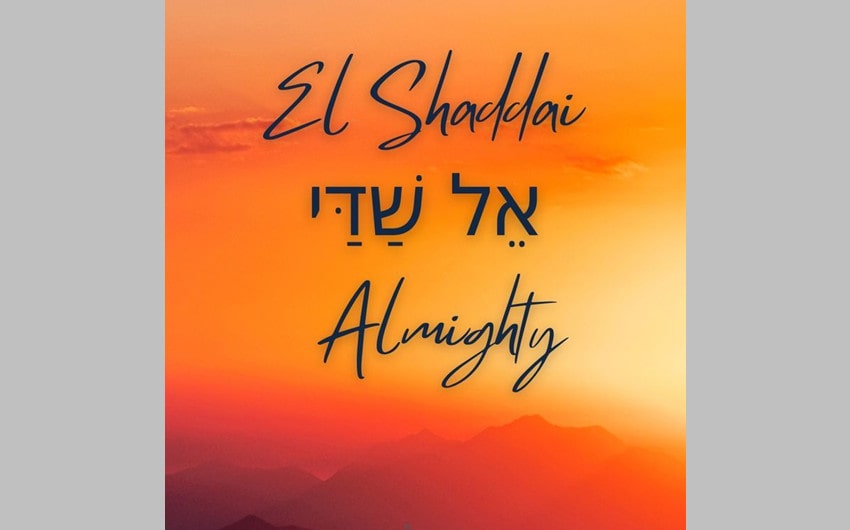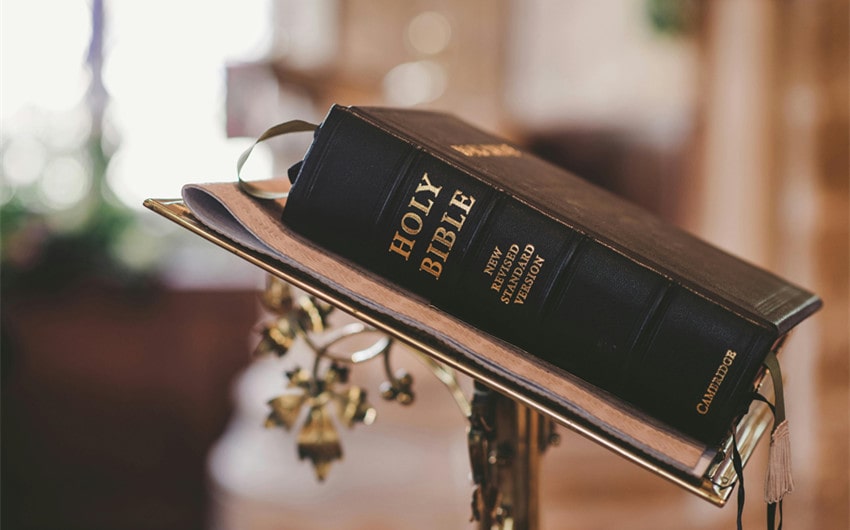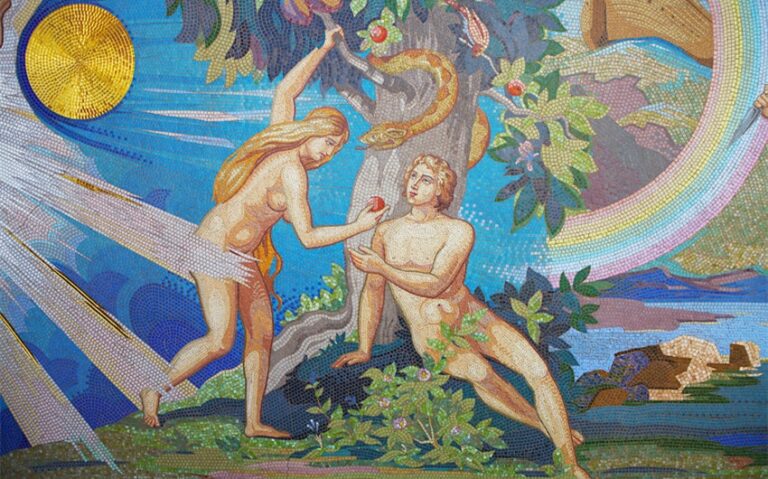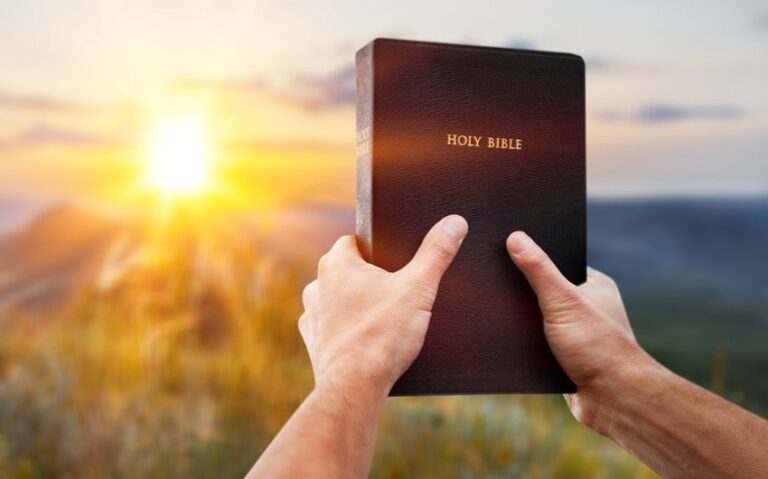Discovering the Deep El Shaddai Meaning in Ancient Scriptures
The name “El Shaddai” is one of the most profound and evocative titles used for God in the Bible. For many, understanding the El Shaddai meaning can deepen their spiritual connection and appreciation for the rich layers of biblical language.
This term has inspired countless believers with its powerful connotations of God’s might and sufficiency. Whether you’re familiar with this name or encountering it for the first time, exploring its roots and interpretations can offer new insights into your faith journey.
Origin and Etymology of El Shaddai

Image source: Pinterest
The term “El Shaddai” is one of the most ancient and revered names for God in the Hebrew Bible, carrying with it a depth of meaning and significance that has intrigued scholars, theologians, and believers for centuries. To fully appreciate its richness, it’s essential to explore both its linguistic roots and the various interpretations that have emerged over time.
Hebrew Roots
“El Shaddai” is composed of two distinct parts: “El” and “Shaddai.” Each component contributes to the overall meaning and understanding of this divine title.
- El (אל): The word “El” is a common Semitic term for God. In the Hebrew Bible, “El” is often used as a generic term for deity, but it also appears as a prefix in many of the compound names of God, such as “El Elyon” (God Most High) and “El Roi” (God Who Sees). The root “El” conveys the idea of might, power, and strength, signifying a God who is powerful and sovereign. It’s a term that not only denotes divinity but also emphasizes the omnipotence and authority of God.
- Shaddai (שדי): The word “Shaddai” is more complex and has been the subject of much debate among scholars. It is often translated as “Almighty” or “All-Sufficient,” but the exact origin and meaning are not entirely clear. Several interpretations have been proposed, each shedding light on different aspects of God’s character.
Meaning of “El”
The significance of “El” in “El Shaddai” lies in its representation of God as the supreme and mighty one. This title emphasizes God’s role as the all-powerful being who has control over all creation. In ancient Semitic cultures, “El” was a common designation for the chief deity, and by using this term, the Hebrew tradition affirms the supremacy of their God over all other gods and powers.
The use of “El” in conjunction with “Shaddai” reinforces the idea of a God who is not only powerful but also possesses qualities that are beyond human comprehension—attributes that make Him worthy of worship and reverence.
Interpretations of “Shaddai”
The meaning of “Shaddai” is less straightforward, and several theories have been suggested regarding its origin:
- Almighty: One of the most common interpretations of “Shaddai” is “Almighty.” This understanding comes from the Septuagint (the Greek translation of the Hebrew Bible), where “Shaddai” is translated as “Pantokrator,” meaning “all-powerful” or “almighty.” This interpretation portrays God as the ultimate power, capable of accomplishing anything and everything, with no limitations.
- All-Sufficient: Another popular interpretation is “All-Sufficient,” indicating that God is self-sufficient and provides all that His creation needs. In this context, “El Shaddai” would emphasize God’s ability to sustain and nurture, providing for His people in every way. This interpretation is comforting to many believers, as it portrays God as a nurturing and caring provider.
- Mountain or Breast: Some scholars suggest that “Shaddai” might be related to the Hebrew word “shad” (שד), meaning “breast,” or it could be derived from an Akkadian word meaning “mountain.” If “Shaddai” is linked to “breast,” it could symbolize nourishment and sustenance, further supporting the “All-Sufficient” interpretation. If related to “mountain,” it could imply strength, immovability, and stability, reinforcing the idea of God as a firm and unshakeable foundation.
- Destroyer: A less common but interesting interpretation is that “Shaddai” could mean “destroyer” or “overpowerer.” This interpretation suggests a God who has the power to destroy or overwhelm enemies, which would emphasize His might and authority in a different way. While this interpretation is less popular, it aligns with certain biblical passages where God’s power to judge and conquer is highlighted.
Biblical References to El Shaddai

The name “El Shaddai” holds significant weight in the biblical narrative, appearing in key moments throughout the Hebrew Bible, particularly in the Old Testament. Each reference to “El Shaddai” is loaded with theological meaning, often highlighting God’s power, sovereignty, and relationship with His people. This section delves into the most notable instances where “El Shaddai” is mentioned, exploring the context, symbolism, and implications of these references.
El Shaddai in Genesis: The Covenant with Abraham
The first appearance of “El Shaddai” in the Bible is found in Genesis 17:1, where God introduces Himself to Abram (later renamed Abraham) with the words, “I am El Shaddai; walk before me, and be blameless.” This moment is pivotal in the biblical narrative, as it marks the establishment of the covenant between God and Abraham—a covenant that would lay the foundation for the entire history of Israel.
- Context and Significance: At this point in the story, Abram is 99 years old and has already been promised by God that he would become the father of many nations. However, Abram and his wife Sarai (later Sarah) are still childless. By identifying Himself as “El Shaddai,” God is emphasizing His omnipotence and His ability to fulfill the seemingly impossible promise of giving Abram descendants as numerous as the stars. The name “El Shaddai” here reassures Abram of God’s power to bring about His promises, regardless of human limitations.
- Symbolism: The use of “El Shaddai” in this context also highlights the dual aspects of God’s character—His might (as “El,” the powerful one) and His sufficiency (as “Shaddai,” the provider and sustainer). This combination reassures Abram that God is not only able to make grand promises but also fully capable of bringing them to fruition.
El Shaddai in the Blessings of Isaac and Jacob
The name “El Shaddai” also plays a crucial role in the blessings bestowed by Isaac and Jacob, key patriarchs in the Israelite tradition. These blessings are significant because they convey the continuation of God’s covenantal promises through the generations.
- Isaac’s Blessing to Jacob (Genesis 28:3-4): In Genesis 28, as Isaac blesses his son Jacob before sending him away to find a wife, he invokes the name “El Shaddai”: “May El Shaddai bless you, and make you fruitful and multiply you, that you may become a company of peoples.” Here, Isaac is asking God to extend His covenantal blessings—promises of fertility, multiplication, and nationhood—upon Jacob. The invocation of “El Shaddai” underscores the belief that it is only through God’s power and provision that such blessings can come to pass.
- Jacob’s Blessing to His Sons (Genesis 49:25): Later, in Genesis 49, as Jacob blesses his twelve sons, he invokes “El Shaddai” in his blessing over Joseph: “By the God of your father who will help you, by El Shaddai who will bless you with blessings of heaven above, blessings of the deep that lies beneath, blessings of the breasts and of the womb.” This verse richly layers the imagery associated with “El Shaddai”—the heavens, the deep waters, and the nurturing aspects of life—emphasizing God’s all-encompassing power and the blessings that flow from His sufficiency.
- Continuity of the Covenant: In both of these blessings, the invocation of “El Shaddai” serves to reinforce the continuity of God’s covenant from one generation to the next. It is a reminder that the promises made to Abraham are being carried forward, sustained by the same powerful and nurturing God.
El Shaddai and the Story of Job
The Book of Job is another significant text where “El Shaddai” appears frequently. In this profound exploration of suffering and divine justice, the name “El Shaddai” is used more than 30 times, making it one of the most concentrated uses of the name in the Bible.
- Job’s Lament and Dialogue with Friends: Throughout Job’s lament and the dialogues with his friends, “El Shaddai” is invoked as a reminder of God’s overwhelming power and control over the universe. For instance, in Job 5:17, Eliphaz the Temanite advises Job, “Behold, blessed is the one whom El Shaddai reproves; therefore despise not the discipline of the Almighty.” Here, “El Shaddai” is depicted as a God who disciplines and corrects, but also as one whose power is ultimately a source of blessing.
- God’s Response to Job: In Job 38-41, when God finally responds to Job’s questioning, it is through a series of rhetorical questions that highlight His power and the vastness of His creation. While the name “El Shaddai” is not directly used in these chapters, the discourse echoes the attributes associated with “El Shaddai”—God’s omnipotence and the incomprehensibility of His ways. The repeated use of “El Shaddai” throughout the book prepares the reader for this climax, where God’s power and wisdom are affirmed.
- Theological Implications: The use of “El Shaddai” in Job emphasizes the tension between God’s overwhelming power and the human experience of suffering. It challenges the reader to trust in God’s sufficiency and justice, even when His ways are beyond human understanding.
El Shaddai in the Psalms
The Psalms, a book of songs and prayers, also contain references to “El Shaddai,” where the name is used to evoke God’s protection and care.
- Psalm 91:1: One of the most well-known references is in Psalm 91:1: “He who dwells in the shelter of the Most High will abide in the shadow of El Shaddai.” This verse portrays “El Shaddai” as a place of refuge and safety, where believers can find protection under the care of an all-powerful God. The imagery of dwelling in God’s shadow evokes a sense of close proximity and security, highlighting the nurturing and protective aspects of “El Shaddai.”
- Psalm 68:14: Another reference is found in Psalm 68:14: “When El Shaddai scattered kings there, it was snowing on Zalmon.” Here, “El Shaddai” is depicted as a mighty warrior who scatters His enemies, demonstrating His power over the nations. This usage reinforces the understanding of “El Shaddai” as not only a protector but also a force to be reckoned with in the face of opposition.
Symbolism in the Scriptures
The recurring use of “El Shaddai” in these biblical references is rich with symbolism, each instance contributing to a broader understanding of God’s nature.
- Power and Protection: “El Shaddai” is often invoked in contexts where God’s power to protect, provide, and sustain is emphasized. Whether it’s the promise of numerous descendants to Abraham or the assurance of divine protection in the Psalms, “El Shaddai” symbolizes a God who is both powerful and intimately involved in the lives of His people.
- Covenantal Faithfulness: The use of “El Shaddai” in the blessings of the patriarchs underscores God’s faithfulness to His covenant. It serves as a reminder that God is the ultimate guarantor of the promises made to Abraham, Isaac, and Jacob—a God who is able and willing to fulfill His word.
- Mystery and Majesty: In the Book of Job, “El Shaddai” embodies the mystery and majesty of God’s nature. The repeated references to “El Shaddai” in a book that grapples with suffering and divine justice highlight the incomprehensibility of God’s ways and the necessity of faith in His ultimate wisdom and power.
Theological Interpretations of El Shaddai
The name “El Shaddai” has been interpreted in various ways across Jewish, Christian, and mystical traditions, each offering unique insights into God’s nature.
1. Jewish Interpretations
- Covenantal God: “El Shaddai” is often associated with God’s power to fulfill His promises, especially in the context of His covenant with the patriarchs. It emphasizes God as the all-powerful, covenant-keeping deity.
- All-Sufficient Provider: Some interpretations see “Shaddai” as “All-Sufficient,” portraying God as the one who nurtures and sustains His people.
- God Who Sets Limits: Another view suggests “Shaddai” means “He who said ‘Enough’,” highlighting God’s role in setting boundaries in creation.
2. Christian Interpretations
- God Almighty: In Christian theology, “El Shaddai” is often translated as “God Almighty,” emphasizing God’s omnipotence and sovereignty over all creation.
- Provider and Sustainer: Similar to Jewish interpretations, Christians also see “El Shaddai” as a provider, embodying God’s care and sufficiency.
- Christological Lens: Some Christians interpret “El Shaddai” as a foreshadowing of Christ’s role, linking it to Jesus as the ultimate expression of God’s provision and power.
3. Mystical Interpretations
- Kabbalistic Significance: In Jewish mysticism, “El Shaddai” is connected to the sefirah of Yesod, representing the divine energy that sustains the physical world.
- Feminine Aspect of God: Some mystical interpretations suggest “El Shaddai” embodies the nurturing, feminine qualities of God, symbolizing compassion and sustenance.
- Divine Abundance: “El Shaddai” is also seen as a symbol of God’s limitless generosity and the abundance of His blessings.
El Shaddai in Modern Contexts
The name “El Shaddai” remains deeply relevant today, resonating in worship, culture, and personal devotion. Its connotations of God’s might, sufficiency, and nurturing care continue to inspire and comfort believers across various modern contexts.
1. Usage in Worship
“El Shaddai” is frequently invoked in modern worship, particularly within Christian communities:
- Hymns and Songs: Amy Grant’s song “El Shaddai” popularized the name in contemporary Christian music, blending English and Hebrew lyrics to emphasize God’s power and sufficiency. The song remains a staple in worship services, reflecting themes of divine provision and protection.
- Prayers and Liturgies: Both Jewish and Christian traditions use “El Shaddai” in prayers, especially during times of need, invoking God’s almighty power and nurturing care. The name is often highlighted in healing prayers and sermons focused on God’s covenantal faithfulness.
2. Cultural Impact
“El Shaddai” has influenced various cultural expressions, from music to video games:
- Music: Beyond worship, “El Shaddai” appears in songs across genres, conveying messages of strength and divine protection. The name’s spiritual depth makes it a compelling choice for artists exploring themes of reliance on God.
- Literature and Media: The name is used in modern literature and video games, such as “El Shaddai: Ascension of the Metatron,” where it evokes divine authority and mystical elements. Its presence in these mediums highlights its enduring cultural relevance.
3. Names and Titles
“El Shaddai” is also used as a name and title in religious communities:
- Personal Names: Some families choose “Shaddai” as a personal name, invoking God’s protection and sufficiency. This practice is particularly common in Christian communities where names are chosen for their spiritual significance.
- Churches and Ministries: Many religious organizations adopt “El Shaddai” to reflect their mission, emphasizing God’s provision and care in their work. The name serves as a reminder of divine power and sustenance.
4. Modern Theological Reflections
Theological discussions continue to explore the relevance of “El Shaddai” in today’s world:
- God’s Power Today: Modern theologians reflect on “El Shaddai” in the context of contemporary challenges, emphasizing God’s unchanging power and sufficiency in an uncertain world. This encourages deeper reliance on God’s provision.
- Interfaith Dialogues: “El Shaddai” serves as a common ground in interfaith discussions between Jewish and Christian communities, enriching understanding of divine power and provision across traditions.
- Spiritual Writings: In devotionals, “El Shaddai” is highlighted as a source of comfort and strength, focusing on God’s nurturing care and omnipotence, offering guidance in personal spiritual journeys.
Comparative Analysis with Other Names of God
| Name of God | Meaning | Key Attribute | Comparison with El Shaddai |
| El Shaddai | “God Almighty” or “All-Sufficient” | God’s power, sufficiency, and nurturing care | Emphasizes God’s ability to provide and sustain. |
| Yahweh | “I Am Who I Am” | Personal, covenant-keeping God | Focuses on God’s eternal existence and personal relationship with His people. Complements El Shaddai’s nurturing aspect. |
| Elohim | “God” (often in the context of Creator) | Creator and Judge | Highlights God’s power as Creator. El Shaddai emphasizes ongoing provision. |
| Adonai | “Lord” or “Master” | Sovereignty and authority | Emphasizes God’s lordship. El Shaddai emphasizes His nurturing provision. |
| Jehovah Jireh | “The Lord Will Provide” | Specific provision | Focuses on God’s timely provision in specific situations. El Shaddai represents general sufficiency. |
| Jehovah Rapha | “The Lord Who Heals” | Healing and restoration | Emphasizes God’s healing power. El Shaddai emphasizes overall provision and care. |







